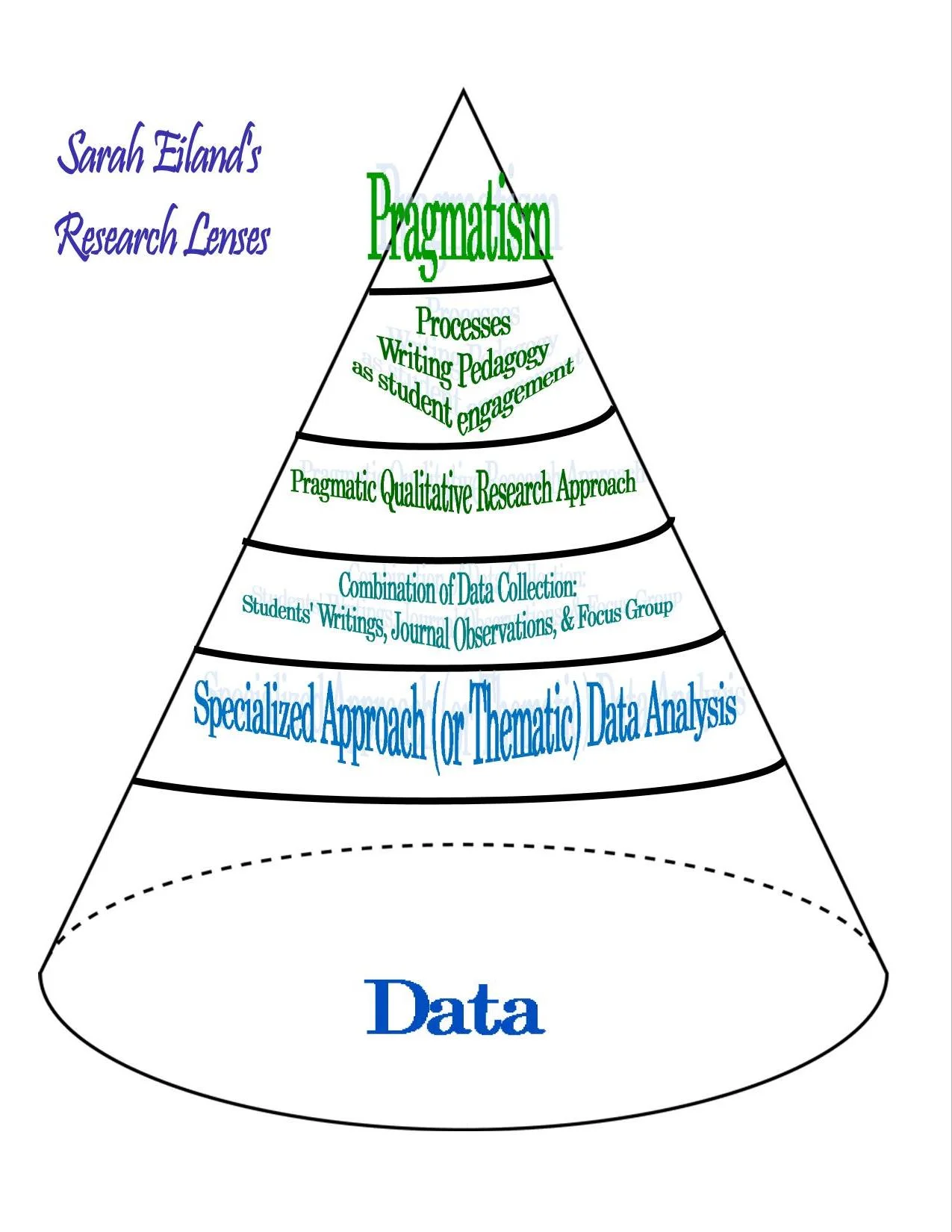As of tonight, I have established my own set of research lenses to view my research.
The first and topmost tier represents the paradigm (philosophical stance), which I have adopted pragmatism (to describe behavior in natural contexts) where I connect theory to practice (p. 24, 32)
2nd tier is the phenomenon -- PROCESSES, which is the first year students' perceptions on writing pedagogy as a student engagement tool
3rd tier is the research approach/framework -- pragmatic qualitative research, within is the narrower version of PQR: Interactionism and the Chicago School (p. 24-25)
4th tier is the data collection -- I am straying away from the recommended pragmatic qualitative research's partner of focus groups by using the phenomenological combination of focus groups, students' writings (documents), and journal observations.
5th tier is the data analysis -- again, I am going with the phenomenological analysis by doing a specialized approach to study the data, which is to triangulate the data and peer debriefing.
